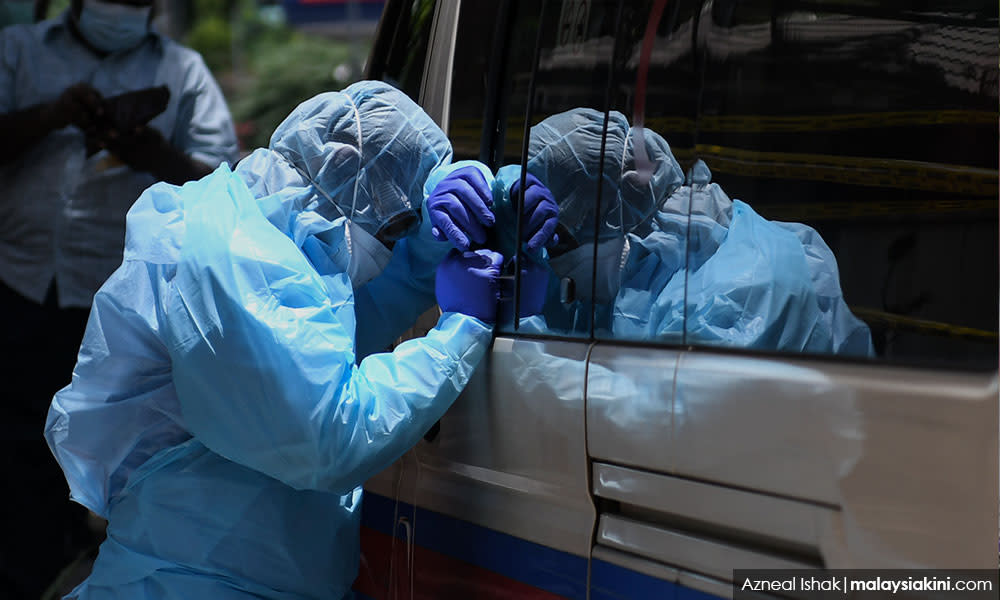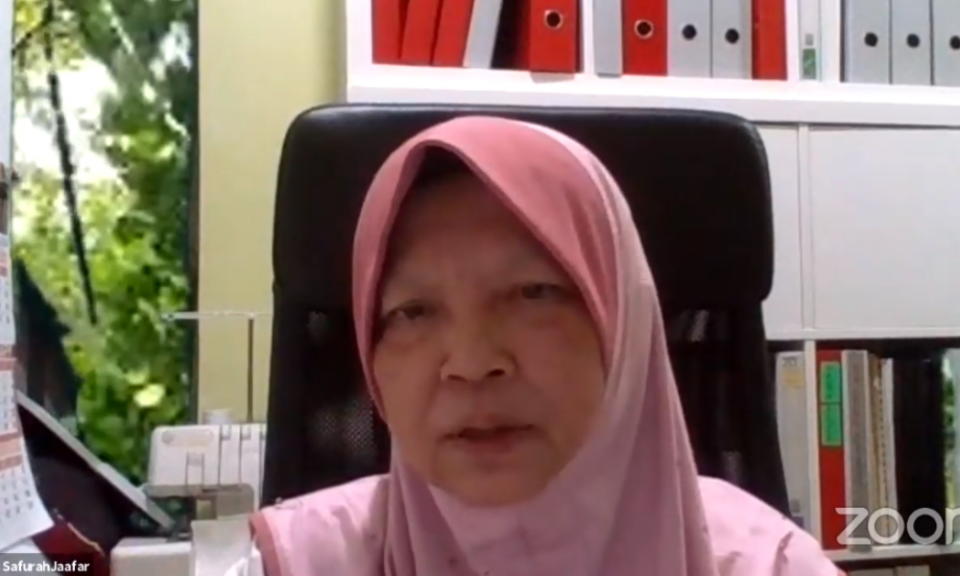Frontliners overworked, patient care compromised - anonymous survey

Healthcare frontliners claimed they are understaffed, overworked, and underpaid while working in overcrowded hospitals with compromised patient care, according to an anonymous online survey.
The survey was conducted by Projek Wawasan Rakyat (POWR) and Angkatan Belia Islam Malaysia (Abim) last week, and its findings were unveiled in a webinar last night.
According to the group, 30 frontliners stationed at healthcare facilities in Sungai Buloh, Kuala Lumpur, Ampang, Kajang, Malacca, Jasin, Pahang and Sabah took part in the survey. They are mainly doctors, medical officers, specialists, pharmacists, dental officers, emergency room staff and IT staff.
Twenty-five of the frontliners said they were overwhelmed.
"Need more help, more doctors, please! (We are) overworked, one medical officer taking care of one ward of 20 to 30 patients, little help from the nurses, unstable patients kept in unsuitable ward conditions, uncooperative patients who refuse treatment etc, especially VIP patients," a medical officer who responded to the survey said.
"It is not easy to work alone, no help, no support, expected to clerk all new cases, don on PPE multiple times for hours, give treatment, run arterial blood gas - it’s exhausting.
"(There's also a) taboo in taking sick leave or emergency leave even if justifiable," the officer added.

Other staffers felt worn-out as they needed to work double shifts to cover those who were on leave, placed under quarantine or infected with Covid-19.
One frontliner said the hospital they worked at kept changing the staff's work schedule, making it impossible for them to rest well even though they still have off days.
"No information was relayed to us as to what the hours would be like, whether we will be given allowances or not - most of us are not doing our usual on calls during Covid-19 rotation - hence loss of steady income as well," said the anonymous staff.
The frontliners also expressed a need for a suitable place where they can work, rest, and pray. Another requested for bathrooms that they don't have to share with 200 people.
Meanwhile, 21 out of 25 healthcare staff members said their problems were not heeded by their superior.
One complained that rules were being made without knowing the situation on the ground.

"People working from the office (Putrajaya, state health office, hospital administration) should listen to us clinicians working on the ground regarding the real situation that we are facing and take our suggestions on how to improve the workflow, maximise patient care and wellbeing, at the same time reducing health and mental risk to healthcare workers.
"They are imposing bullish rules onto us, restricting resources for us to work efficiently and silencing us from within.
"These so-called higher authorities just brush off our questions, our request for help and apply blanket rules on everything and every patient," they said.
Another claimed that superiors at a hospital were holding "endless" meetings without any outcome, while medical officers struggled with a lack of equipment, facilities, and constant overcrowding to the point that it endangered patients.
"There is no more infection control in our Emergency Department. Beds are so closely positioned that it becomes impossible to prevent cross-infection.
"We do not have enough oxygen ports, our makeshift oxygen tanks take up space. We do not have enough ventilators. We have seen other non-Covid-19 related patients die because of delay in treatment due to the overwhelming Covid-19 cases. Patients are discharged too early to make way for other patients and deteriorate at home. No, it is not okay.
"Our hospitals have been overtly short of ICU (intensive care unit) beds even before Covid-19. Now with Covid-19, it has become impossible. Nobody has highlighted the truth to the public," the medical officer said.
The officer added that the lack of beds meant that some patients were waiting for days before they could be hospitalised.

Meanwhile, another hospital staff member claimed that doctors and medical students were getting infected because morning rounds at wards were being carried out as usual.
"Guess what most of the departments are doing it, and guess what we have clusters from it. Seriously, we call ourselves medical personnel? Who should be blamed?" said the anonymous employee.
The Covid-19 third wave, which hit Malaysia from Oct 1 last year, has seen the number of new infections soar to four-digits in the past three months.
On Jan 6, Health Ministry director-general Dr Noor Hisham Abdullah warned that the healthcare system, which was struggling to cope with the number of patients, was at breaking point.
Dr Safurah Jaafar, former director of the Health Ministry's family health development division, told last night's webinar that the views expressed by the respondents reflect many concerns that frontliners have.
"I think what the few had shared is representing the many. Yes, many of them shied away, but I think the few can speak on their behalf.
"It is a call that requires togetherness in the plan to help frontliners and the community at large. It is a call for many of us, to the people who make policies," she said.

Meanwhile, activist Marina Mahathir said the feedback from the anonymous frontliners was disturbing as it made people wonder if the country can manage the pandemic.
She said it is unlikely for the country to have the best quality of healthcare services with frontliners all burnt out.
"It is sad to hear that they have to do an anonymous survey to get these responses because they don't dare to speak out loud.
"This is some sort of culture of clamping down any critical voice," Marina added.
Former Malaysian Bar president Ambiga Sreenevasan said the country has to do better to cope with the pandemic.
"We and the netizens were saying that it doesn't look like the authorities have a plan. It looks like the frontliners are saying the same thing.
"I mean seriously... come on, Malaysia, we really need to do better and we must do better," she added.


